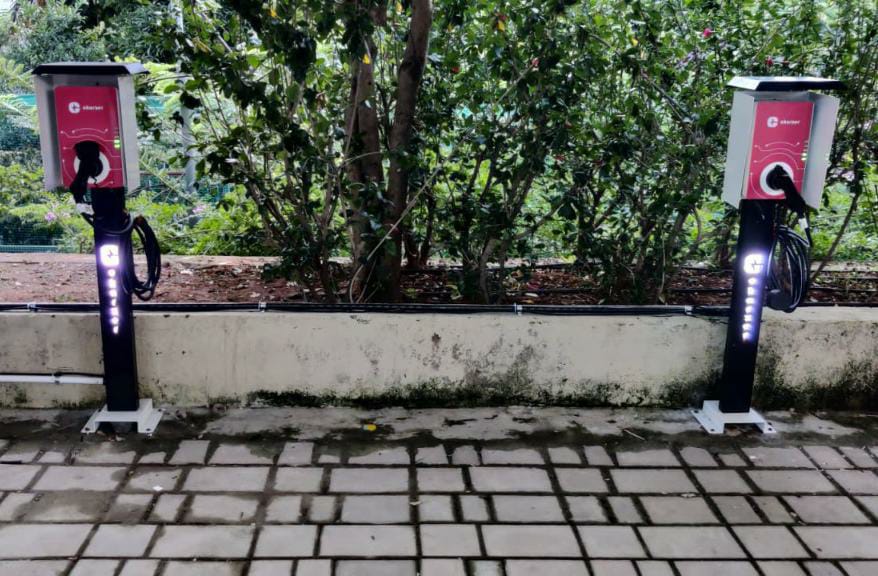In India, in 2019, the Ministry of Housing and Urban Affairs issued a guideline directing commercial and residential complexes to set aside 20% of their parking space for Electric Vehicle (EV) charging infrastructure, hoping to promote EV adoption.
Similarly, the IGBC (Indian Green Building Council) has mandated that each premise, residential or commercial, has to dedicate an area for EV parking space and for installation of charging facilities. To meet the regulatory requirements, developers must incur significant expenses.
Read more: The EV battle: Western manufacturers vs. Chinese
“One of the key challenges for many real-estate builders today is that the EV charging setup is very complicated. To meet the customer demand or government’s requirements, the upfront cost that they have to incur is very high,” says Sameer Ranjan Jaiswal, CEO and Co-Founder of EV charging station aggregation platform Charzer.
Charzer has recently partnered with Pune’s Nirman Developers to install EV charging stations across all their residential and commercial properties in Pune.
“In the past one year, there has been a sudden increase in the number of EV vehicles. We found that flat owners are installing their own charger, which leads to a higher capex cost as well as higher MSEB (Maharashtra State Electricity Board) tariff from their electric meter,” says Sandeep Maheshwari, Partner, Nirman Developers.
One of the key challenges for many real-estate builders today is that the EV charging setup is very complicated. To meet the customer demand or government’s requirements, the upfront cost that they have to incur is very high
“After the recent change of MSEB offering reduced tariff for EV charging from a dedicated common meter, we were searching for a suitable solution. We found the solution from Charzer perfectly matching our requirements and decided to partner with them to install EV chargers at our project Nirman Altius at Kharadi and Nirman Vishnubaug at Model Colony in Pune. The residents of these projects will be able to charge their EV at a reduced cost without investment in the infrastructure,” he adds.
Juniper Research predicted at the beginning of the year that spend on EV charging at home will exceed US$16 billion globally in 2026, owing to lower cost and convenience of home charging for EVs, rather than using costly and frequently inconvenient public charging networks. This kind of a partnership can help overcome the challenge for EV owners.












